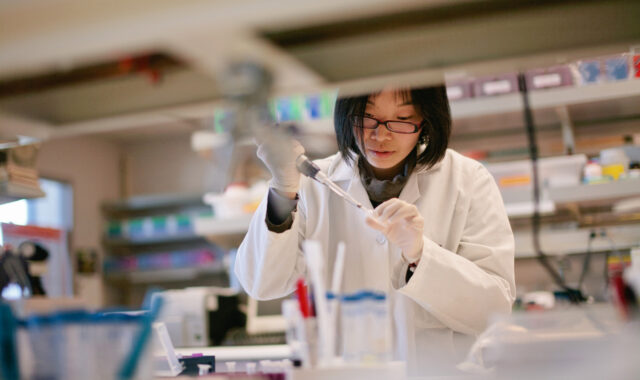
Liyana Y.
University LecturerWhat is the nature of your role and its responsibilities?
My role as a university lecturer in a research university is responsible for advancing knowledge through teaching, research, and community engagement. We contribute to the academic excellence of the institution by delivering high-quality education and fostering an innovative research environment, especially in medical field.
What led you to follow this career path?
I have a strong research interest in cardiovascular science and at the same time I love teaching.
What qualification(s) or training did you complete?
I have PhD in cardiovascular science and graduated with masters and first degree in biomedical science.
How are your qualification(s) or training useful in your everyday job?
A PhD in cardiovascular science, combined with a master’s and bachelor’s degrees in biomedical science, provides an excellent foundation for a university lecturer role. The advanced knowledge gained through doctoral research equips me to teach specialised topics such as cardiovascular physiology, pharmacology, and biomedical sciences. Doctoral training develops essential research skills, including designing experiments, analysing data, and investigating complex mechanisms like cardioprotection and therapeutic targets. These skills align with a lecturer’s role in contributing to impactful research and advancing knowledge in the field. In addition, my publications and research experience demonstrate our ability to contribute to the scientific community and enhance the institution’s reputation as a research hub. The multidisciplinary nature of my qualifications allows us to engage with diverse topics in health and biomedical sciences, making us versatile in course delivery and collaborative research.
What does an average working day look like for you?
A university lecturer’s day is diverse, blending teaching, research, and administrative duties. It typically includes preparing and delivering lectures, grading assignments, mentoring students, conducting research, writing papers or grant proposals, and attending meetings. Time is also spent developing course materials, supervising thesis work, and collaborating with colleagues on academic projects. Balancing these responsibilities requires effective time management and adaptability, as priorities can shift between teaching commitments and research deadlines. Engaging with academic committees or community outreach activities may also be part of the day, contributing to the institution’s academic and social goals.
What aspect of your role do you most enjoy?
The most enjoyable aspect of being a university lecturer is the opportunity to inspire and mentor students, fostering their academic growth while sharing a passion for the subject. Additionally, contributing to groundbreaking research and advancing knowledge in the field is deeply fulfilling. The role allows for intellectual freedom, encouraging creativity and innovation in both teaching and research. Collaborating with colleagues, shaping curricula, and engaging with the academic community also bring satisfaction. Above all, making a meaningful impact on students’ lives and contributing to societal progress through education and research is the most rewarding part of the job.
What aspect of your job do you find most challenging?
The most challenging aspect of being a university lecturer is balancing multiple responsibilities, including teaching, research, and administrative duties, all with tight deadlines and high expectations. Managing diverse student needs, providing effective mentorship, and staying updated with advances in the field require constant effort. Securing research funding and publishing in competitive journals can also be stressful. Additionally, adapting to new teaching technologies and methods, while maintaining work-life balance, can be demanding. These challenges, however, often lead to personal and professional growth, as they push you to improve time management, problem-solving, and adaptability skills.
What would be your top piece of advice for anyone wanting to become a university lecturer?
Stay passionate about your field of interest and committed to lifelong learning to inspire others and contribute meaningfully to academia.













Comments